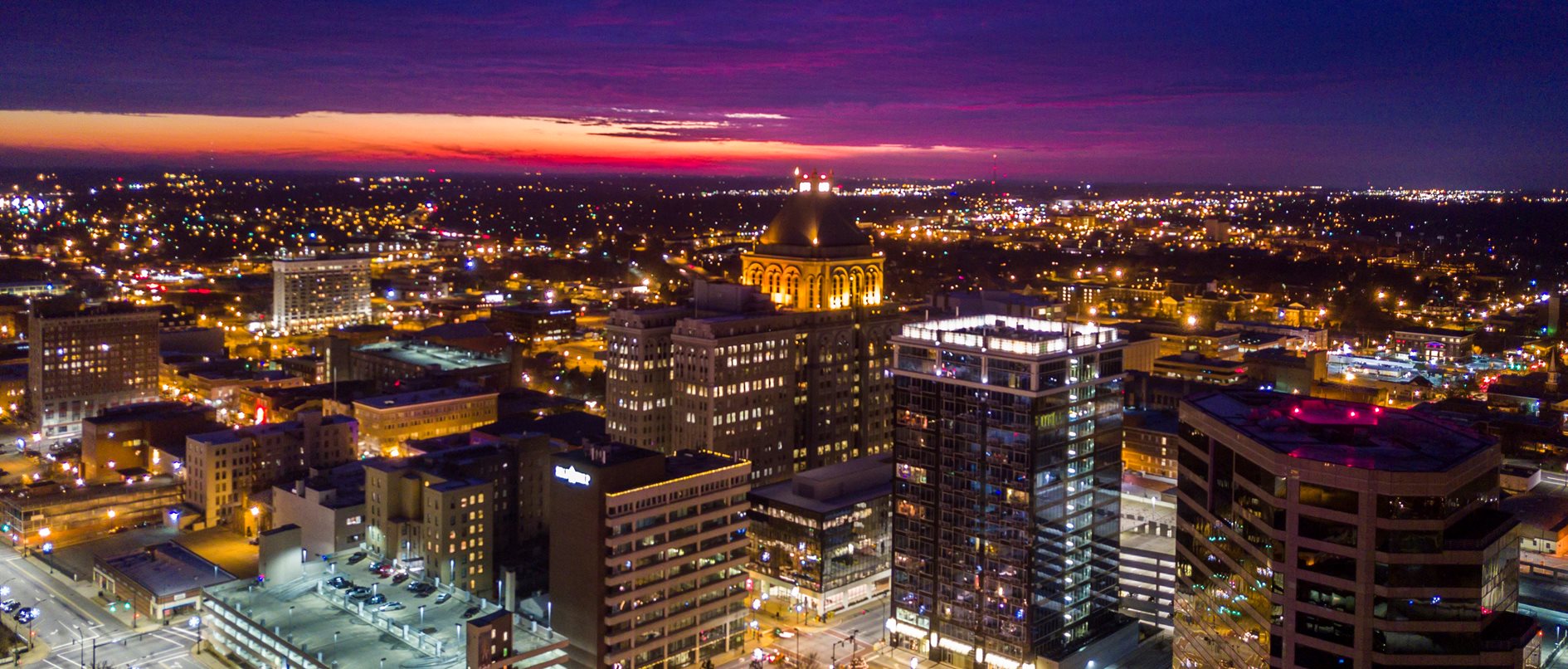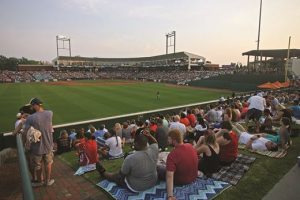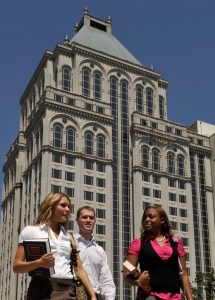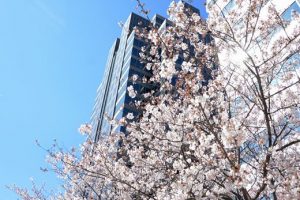Life in Greensboro
A Hub of Learning, Lawyering, and Leadership

Downtown Greensboro serves as the hub of the judicial system in central North Carolina. Courts located within blocks of the law school include the U.S. District Court and U.S. Bankruptcy Court for the Middle District of North Carolina. In addition, several branches of the North Carolina General Court of Justice, including the Superior, District, Drug Treatment, Mental Health, and Small Claims Courts, are just a short walk from the law school. The North Carolina Business Court is housed inside the law school. Dozens of large, medium, and small law firms, as well as municipal offices, are located within blocks of the law school as well.
Learn more about our dynamic city from the Greensboro Chamber of Commerce.
A dynamic environment for higher education
 More than 47,000 college and university students in Greensboro, representing seven institutions of higher education, create a vibrant intellectual and cultural community. In addition to its reputation as a creative community and an educational center, Greensboro is home to a robust economy encompassing a wide-range of business sectors, including the high growth industries of aviation, transportation & logistics, advanced manufacturing, IT, financial services, and the life sciences. Visit OpportunityGreensboro.com for details about the thriving knowledge-based atmosphere of Greensboro.
More than 47,000 college and university students in Greensboro, representing seven institutions of higher education, create a vibrant intellectual and cultural community. In addition to its reputation as a creative community and an educational center, Greensboro is home to a robust economy encompassing a wide-range of business sectors, including the high growth industries of aviation, transportation & logistics, advanced manufacturing, IT, financial services, and the life sciences. Visit OpportunityGreensboro.com for details about the thriving knowledge-based atmosphere of Greensboro.
A flourishing downtown

The law school is part of a flourishing downtown area that includes the Steven Tanger Center for the Performing Arts, the nationally recognized Center City Park, dozens of fine and casual dining establishments, a wide-range of arts, clothing, and specialty shops, a YMCA, and First National Bank Field, home of the Greensboro Grasshoppers minor league baseball team. With a variety of museums, art galleries, theatres and historic sites near the law school, the downtown area offers a rich cultural experience for students, young professionals and families.
Located in the center of an urban crescent stretching from Raleigh to Charlotte, Greensboro is the third largest city in North Carolina with a population of approximately 250,000. The city is part of the Piedmont Triad, a region that includes Winston-Salem and High Point, with population of more than 1.6 million.
Our “Top 10” List of Reasons to Make Greensboro Your Home for Law School

- Great weather! Elon Law is located in downtown Greensboro, North Carolina, a region known for its mild climate, with four seasons, snow less than four times per year and sunshine 217 days a year on average.
- The legal hub of central North Carolina, with federal and state courts, hundreds of law offices and thousands of businesses
- 90 minutes to the mountains
- Less than three hours to the coast and beaches
- Dozens of amazing parks throughout the city, including an $11 million park two blocks from Elon Law
- The Greensboro Coliseum, home to major sports and entertainment events
- A minor league baseball stadium two blocks from Elon Law, an NBA G-League team, and a Downtown Greenway nearing completion
- Vibrant arts venues, including the million Steven Tanger Center for the Performing Arts two blocks from Elon Law
- Numerous golf courses and state parks less than 30 minutes from downtown Greensboro
- Greensboro includes 47,000 students at seven colleges and universities, creating a dynamic social environment and catalyzing over $250 million in current development projects downtown
Don’t just take our word for it. U.S. News & World Report ranked Greensboro the #23 best place to live in the nation in its 2024 rankings.
Learn more about Greensboro at the links below:
- Greensboro Convention and Visitors Bureau
- DowntownGreensboro.org
- ExploreGreensboro.com
- ActionGreensboro.org
- Piedmont Triad International Airport
Celebrate Greensboro
U.S. Airways Magazine recently published a feature report about Greensboro, N.C.
We thank U.S. Airways and Pace Communications for allowing us to share this report with you, through the pdf links below.
- Celebrate Greensboro
- Eastern Music Festival
- The Atlantic Coast Conference
- Green Hill Center for NC Art
- Greensboro Ballet
- Guilford College Bryan Series
- International Civil Rights Center & Museum
- United Arts Council of Greater Greensboro
- Weatherspoon Art Museum
- Action Greensboro
- Downtown Greenway
- Blandwood
- The Carolina Theatre
- The Community Foundation
- Downtown Greensboro Inc.
- Elsewhere Collaborative
- Greensboro Historical Museum
- Greensboro Coliseum Complex
- Greensboro Children’s Museum
- Greensboro Opera
- Natural Science Center
- Triad Stage
- Greensboro Symphony
- UNCG School of Music, Theatre, and Dance